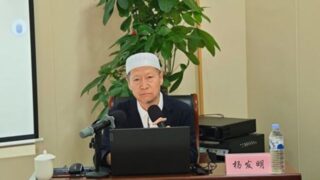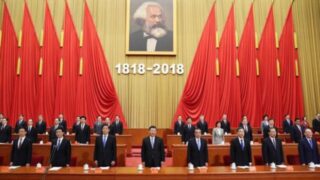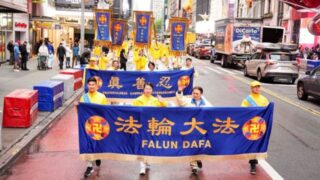After several pages of platitudes, the cat comes out of the bag. The West cannot impose its model of democracy, we are told, there is a better one based on “the global vision of the Chinese Communist Party.”
by Massimo Introvigne
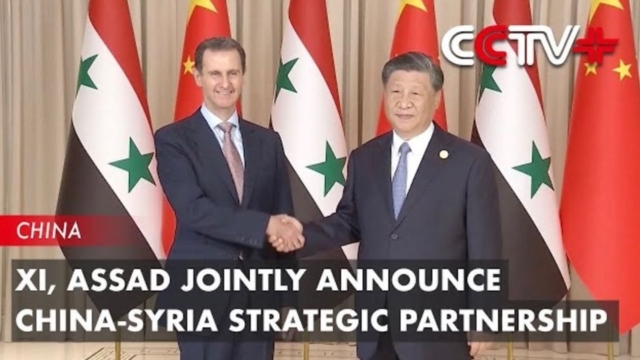

After creating a climate of anticipation for several weeks, President Xi Jinping has finally unveiled his plan for a “Global Community.” Chinese media hailed it as a historical document, proposing a sustainable and really “multilateral” new world order after the failure of the one based on the American-Western concept of democracy, which did not guarantee international peace.
Readers should brace themselves for several pages of platitudes about the shared destiny of humanity, interdependence, sustainable development, peace, and love. Nobody can disagree. Who would disagree with the quoted Mongolian proverb, “Neighbors are connected at heart and share a common destiny”? Or with Mexican poet Alfonso Reyes’ statement that “The only way to be profitably national is to be generously universal”? These quotes give some poetic allure to what is otherwise a not particularly original compilation of United Nations documents, generic enough to be subscribed by both democratic and non-democratic regimes.
Having made the readers narcoleptic, the document hopes to catch them off-guard when it delivers the real blow. Countries, preferably authoritarian, are called to join China in proclaiming that “Democracy is not Coca-Cola, tasting the same across the world as the syrup is produced in one single country… Attempts to monopolize the ‘patent’ of democracy, arbitrarily define the ‘standards’ of democracy, and fabricate a false narrative of ‘democracy versus authoritarianism’ to provoke confrontation between political systems and ideologies are practices of fake democracy. Promoting the common values of humanity is not about canonizing the values of any particular country, but about seeking common ground while reserving differences, harmony without uniformity, and fully respecting the diversity of civilizations and the right of all countries to independently choose their social systems and development paths.”
As usual, this means allowing each country to define “democracy” as it deems fit. It is a case of trademark infringement and fraud against the consumers, because the bottle is labeled “Coca-Cola” but inside you can find dirty water or worse. China, for many years a paradise of counterfeiting, has a long experience in this field.
Obviously, to mean anything “democracy” should define systems with free elections, free speech, freedom of the press, freedom of religion or belief, separation of powers, and independence of the judiciary, all features egregiously absent in the systems of China and most of its allies.
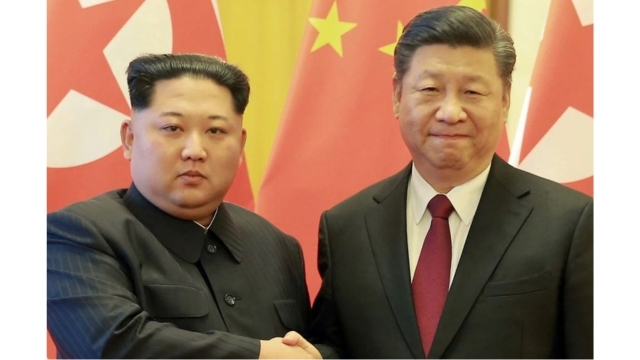

What Xi can boast of are the economic advantages experienced by those who ignore human rights in favor of trade with China and other authoritarian regimes. Yet, his examples are not persuasive. He claims that Greece had an almost bankrupt port, Piraeus, that now flourishes under the Belt and Road system. Perhaps it does, but the price is that the port of Piraeus is now controlled by China, not Greece.
Where Xi’s document becomes involuntarily comical is when it dares to provide an example of a “different” democracy. It is “the valuable experience accumulated by the Chinese Communist Party (CCP) in its century-long history. Over the past one hundred years and more, the CCP has always sought happiness for the Chinese people and rejuvenation for the Chinese nation while pursuing progress for all of humanity and the common good of the world. It succeeded in … developing a new form of human advancement. These successes have laid a solid foundation for building a global community of shared future, charting the course and opening up broad prospects for this great endeavor.”
Not even Xi Jinping believes this. Really did the CCP “always seek happiness for the Chinese people”? What about the Great Leap Forward and the Cultural Revolution, with their millions of casualties? Did they bring “happiness to the Chinese people”? Xi often celebrates Deng Xiaoping, which defined these historical tragedies as unmitigated disasters. Not to mention the good work for “happiness” by Xi Jinping himself, with the dreaded “transformation through education camps” for the Uyghurs, the increased persecution of all religions, the support to Russia’s war of aggression against Ukraine and for all sort of criminal dictators throughout the world.
What Xi really proposes is a “global community” of dictators, tyrants, managers of concentration camps, executioners, and torturers. Indeed, this “global community” already exists and makes its weight felt at the United Nations. Perhaps Alfonso Reyes’ quote has been reinterpreted as “The only way to make crime profitable nationally is to pretend your crimes are universal.”





